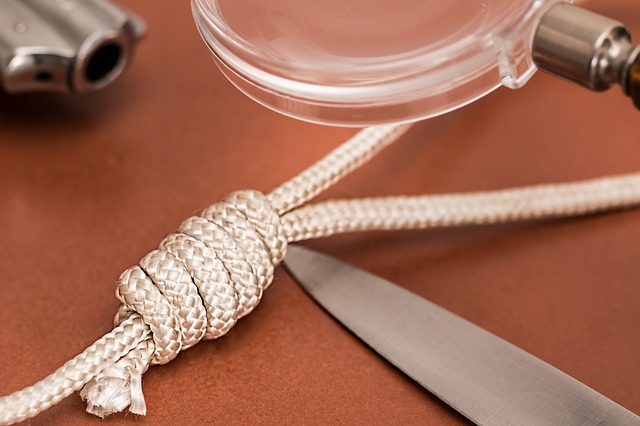
Criminal defense attorneys MAY NOT possess evidence of a crime.
Anyone who loves crime dramas and legal thrillers has seen at least one movie or TV show where a defendant tries to tell their attorney about what they actually did, and their lawyer says, “I don’t want to know!” This may seem strange to people. After all, why wouldn’t your defense attorney want to know the truth? How can they properly defend you if they don’t have all of the facts? Well, this is a complex subject, but the truth is, there are many laws and professional ethical mandates which govern the conduct of defense attorneys.
In an article written by Evan A. Jenness and published by the National Association of Criminal Defense Lawyers, he opens by pointing out the dichotomy that defense attorneys face in their practice every day. “Criminal defense lawyers help clients and safeguard their secrets. They also must follow the law. These obligations collide when a lawyer acquires tangible evidence of a client’s crime, leaving counsel to walk a fine line between protecting a client and avoiding wrongdoing.”
So what does a criminal defense lawyer do? Where do they draw the line between doing their job and breaking the law? Well, the issue of legal violation hinges on evidence of a crime, and whether or not an attorney has possession of that evidence. Jenness breaks this issue down into two categories. The first category refers to the actual items a defendant used in the commision of a crime, which are called ‘contraband’ or ‘instrumentalities’. This could include a gun used in a murder, a lock-pick used in a burglary, or a wooden bat used in an assault.
This is where an attorney’s ethical duty becomes an issue.
In Michigan, an attorney who possesses contraband used in a crime would have to get rid of them. However, they could not, under any circumstances, destroy them or hide them from the police! This is a tricky situation, and one that most defense attorneys work hard to avoid. After all, the penalties for breaking the law, if you are a practicing attorney, could include losing your law license and even facing criminal charges.
We know you’ve seen similar scenarios in movies and shows, like the one where the guy who shot up a bank gives his lawyer the gun he used for safekeeping. Or the one where a murder tells his attorney where he hid the knife used in a murder, so that attorney can retrieve it and hide it from the police. But these are not legal, and the attorneys here in Michigan who become involved in their client’s criminal activity risk a great deal. Long story short – – – don’t expect your criminal defense lawyer to hold or hide contraband.
The second category noted by Jenness in his article refers to ordinary items which have “evidentiary significance.” This means any ordinary item or object which is not directly related to the crime in question, but which could potentially incriminate someone. For example, correspondence like emails or text messages, bank statements, or phone records. According to Jenness, “mere possession of ordinary evidence is not a crime requiring counsel to stop possessing the evidence.” This would change, however, if law enforcement was able to obtain a court order or subpoena requires it.
As Michigan criminal defense lawyers, we are often faced with situations where we are aware of confidential information regarding our client’s’ criminal activity. In these cases, we strive to follow all the Michigan rules of professional conduct when it comes to ethically dealing with that information, while still providing our clients with the best defenses.
As a result, we maintain strict client confidentiality, unless this is no longer legal, because we take representation of our clients very seriously. If you or a loved one have been accused of a crime in Michigan, call our skilled defense attorneys at 866 766 5245. But don’t expect us to conceal evidence from the police. We are here to help you but we don’t cross legal or ethical boundaries. That’s kept us in business for nearly a quarter century with a solid gold reputation with judges and courts.







